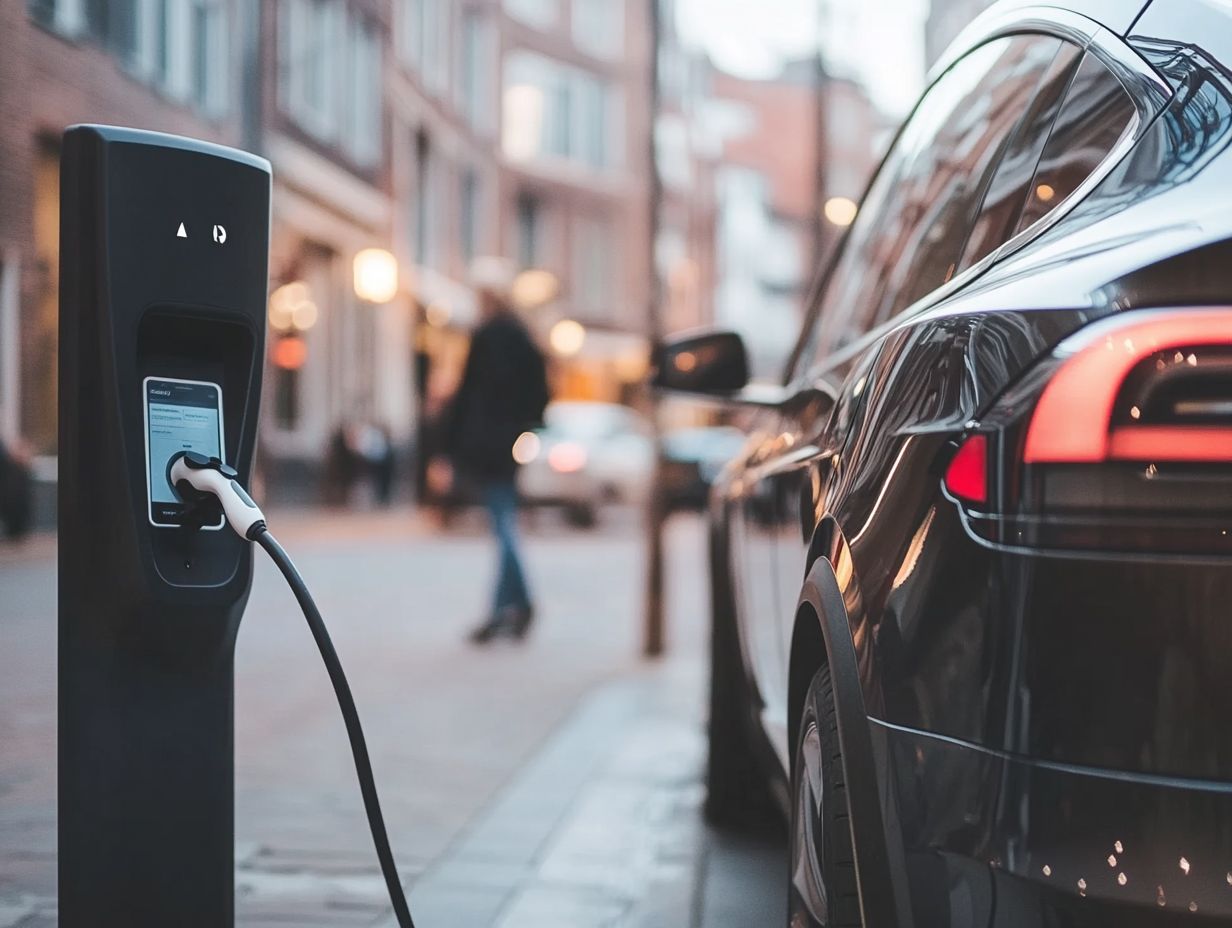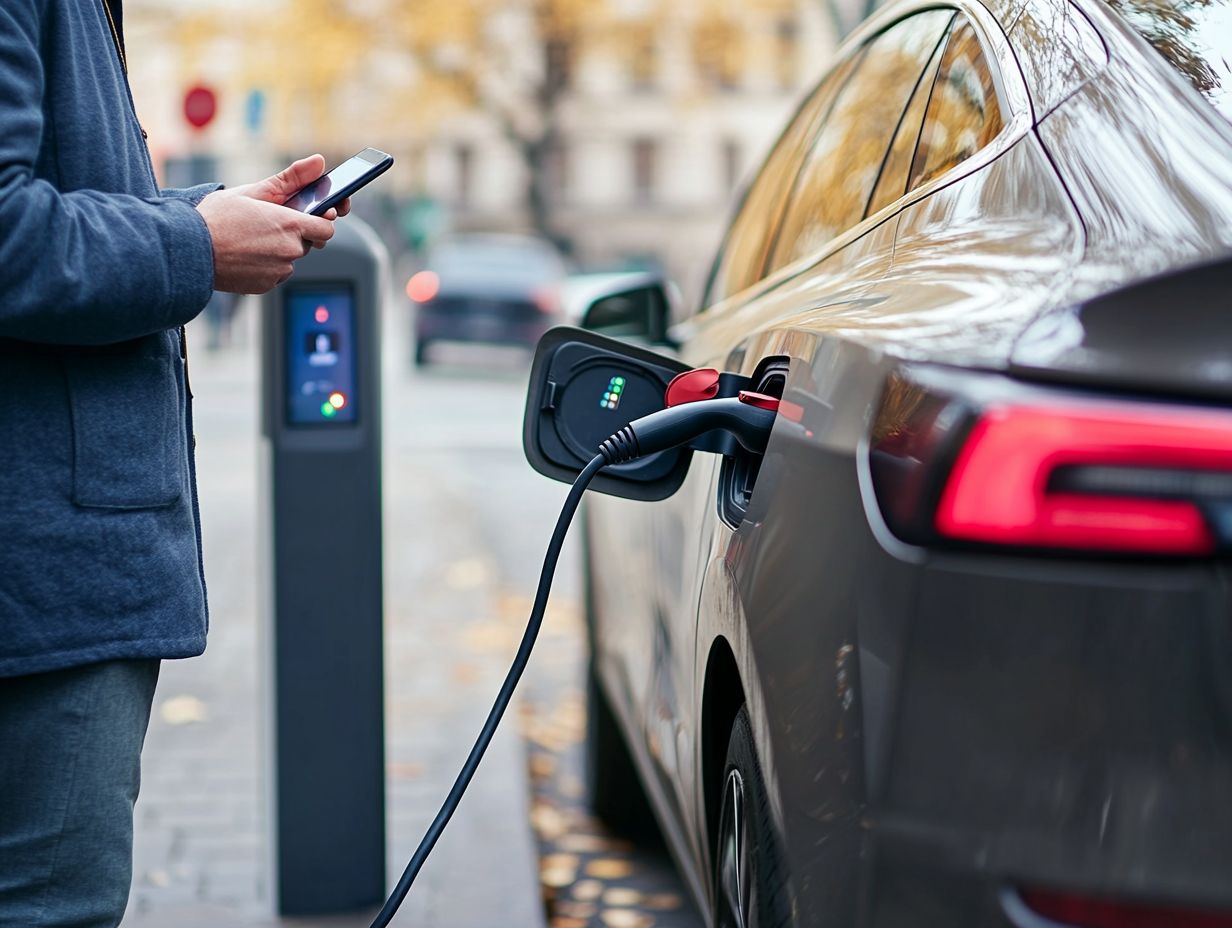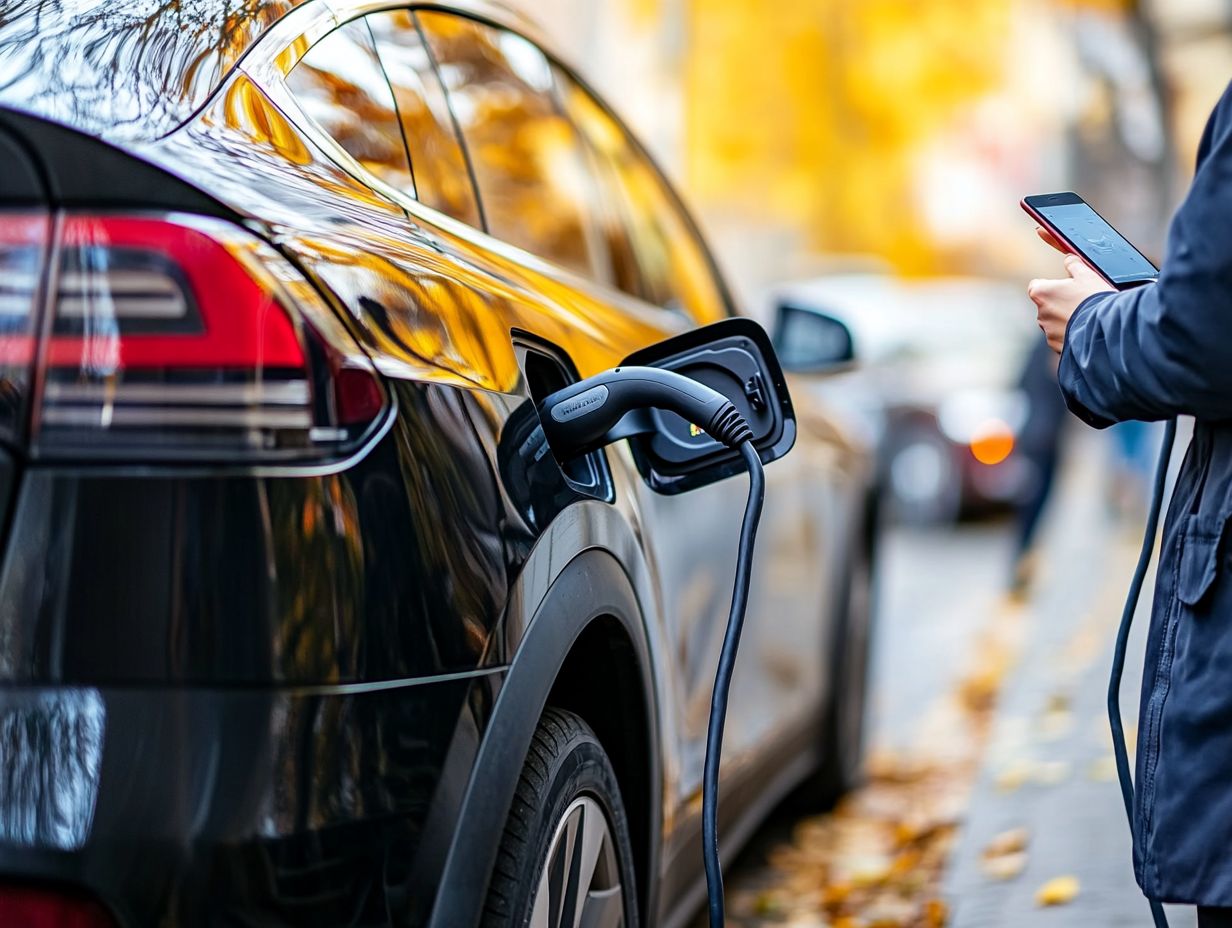What is Auto Insurance for Electric Cars?
Navigating the world of auto insurance can feel like a maze, particularly when it comes to electric vehicles. As these eco-friendly cars surge in popularity, understanding their unique insurance requirements is crucial. This article delves into the specifics of auto insurance for electric cars, highlighting the differences in coverage, rates, advantages, and key factors that impact insurance costs.
Moreover, you’ll find practical tips designed to help you discover the best policy for your electric ride.
Contents
- Key Takeaways:
- Unique Considerations for Electric Cars
- Benefits of Insuring an Electric Car
- Factors that Affect Insurance Rates for Electric Cars
- How to Find the Best Insurance for Your Electric Car
- Frequently Asked Questions
- What is Auto Insurance for Electric Cars?
- Do I need special insurance for my electric car?
- What does auto insurance for electric cars cover?
- Is auto insurance for electric cars more expensive?
- Are there any discounts available for electric car insurance?
- Do I need to notify my insurance company if I switch to an electric car?
Key Takeaways:

- Auto insurance for electric cars protects you from financial losses due to accidents or damages.
- Insuring an electric car can save you money and positively impact the environment.
- Consider the vehicle s battery, range, and charging options when shopping for insurance.
What is Auto Insurance?
Auto insurance is an agreement between vehicle owners and insurance companies. It provides financial protection against damages and liabilities from accidents, theft, or other incidents involving your vehicle, whether it’s electric or gas-powered.
This coverage is vital for ensuring safety on the roads and can vary significantly based on several factors, such as the type of vehicle you own, your driving record, and the insurance provider you choose.
Understanding the various types of coverage is essential when negotiating an insurance policy. Liability coverage protects you against damages you may cause to others. Collision coverage ensures that your own vehicle can be repaired after an accident, regardless of who s at fault. Comprehensive coverage shields you from non-collision-related incidents, like theft or natural disasters. This makes auto insurance critical, not only for traditional combustion engine vehicles but also for the growing range of electric vehicles, which come with their own unique risks and repair expenses.
Ultimately, having the right blend of coverage can provide you with peace of mind and financial security, making a substantial difference if you ever find yourself facing an unforeseen mishap.
Unique Considerations for Electric Cars
When you re considering auto insurance, electric cars have unique challenges and advantages that set them apart from traditional vehicles. Their modern tech, including batteries and hybrid systems, plays a vital role.
Understanding these differences is essential, especially if you want to insure your electric vehicle effectively and economically.
Differences in Coverage and Rates
The differences in insurance coverage and rates for electric vehicles compared to traditional gas-powered vehicles hinge on various factors, including repair costs, specialized parts, and the availability of qualified repair shops. These variables can lead to either higher or lower insurance premiums.
The claims history of electric vehicles significantly influences insurance premiums. For example, if electric vehicles demonstrate fewer accidents or lower repair costs thanks to their advanced technology and safety features, insurers may respond by offering more competitive rates.
If you’re seeking the best possible insurance coverage for your electric vehicle, it’s essential to evaluate your driving habits and the specific risks tied to your model. By comparing quotes from multiple insurers and considering factors like mileage and usage, you can navigate the intricacies of the insurance landscape with greater ease and make informed decisions that truly reflect your needs.
Benefits of Insuring an Electric Car

Insuring an electric car offers numerous advantages. You could enjoy possible savings on your insurance costs and benefit from lower emissions.
This makes electric vehicles a sustainable choice. It’s also a smart financial decision.
Cost Savings and Environmental Impact
The cost savings with electric vehicles go beyond lower premiums. These cars reduce emissions and foster a greener environment.
This approach benefits your wallet and encourages a sustainable lifestyle. Many insurers offer discounts for electric vehicle owners due to lower risks.
By opting for electric options, you help shrink your carbon footprint and champion cleaner air. You’re also supporting renewable energy growth.
Factors that Affect Insurance Rates for Electric Cars
Several factors influence insurance rates for electric cars. These include your claim history, maintenance costs, self-driving features, and cybersecurity concerns.
Insurers consider all these elements when setting your premiums. Understanding their impact is essential to managing your costs.
Key Factors to Consider
When looking into insurance for electric vehicles, check coverage options, the reputation of repair shops, and cost-effectiveness. Some policies cater specifically to electric vehicles, covering battery replacements and specialized roadside assistance.
Explore potential discounts for using home charging stations or joining driving safety programs. These can provide significant savings compared to conventional policies.
How to Find the Best Insurance for Your Electric Car

Finding the ideal insurance for your electric car requires careful comparison shopping. Identify policies with optimal coverage, competitive rates, and benefits for electric vehicle owners.
This ensures you secure the best protection while maximizing your investment’s value.
Tips for Comparison Shopping
When you’re comparison shopping for electric vehicle insurance, gather multiple quotes from a variety of insurance providers. This allows you to assess coverage levels, pricing, and any unique features tailored specifically for electric vehicles.
Evaluating these quotes can be enlightening, helping you spot significant differences in premiums and deductibles. Focus on the overall cost and the specifics of the coverage options available.
Pay attention to details like liability limits, collision and comprehensive coverage, and any discounts applicable to electric vehicle ownership. Reading reviews on insurance providers gives you valuable insights into their customer experiences and service quality, helping you avoid companies that may not meet your expectations.
By focusing on carriers that specialize in electric vehicle offerings, you ensure better protection and can take advantage of any available incentives.
Frequently Asked Questions
What is Auto Insurance for Electric Cars?
Auto insurance for electric cars is a type of insurance that provides coverage for damages and liabilities specific to electric vehicles, including comprehensive coverage for electric cars.
Do I need special insurance for my electric car?

Yes, electric cars require special auto insurance due to their unique features and potential risks.
What does auto insurance for electric cars cover?
Auto insurance for electric cars typically covers damages and liabilities related to the vehicle’s battery, charging equipment, and electric motor.
Is auto insurance for electric cars more expensive?
It depends on several factors, such as the make and model of your electric car, your driving history, and the insurance provider. In some cases, it may be more expensive than traditional auto insurance.
Are there any discounts available for electric car insurance?
Yes, some insurance providers offer discounts for electric car owners, such as specialized coverage for the vehicle’s battery and lower rates for eco-friendly vehicles.
Do I need to notify my insurance company if I switch to an electric car?
Yes, it is important to inform your insurance company if you switch to an electric car, as your coverage and rates may need to be adjusted accordingly.






